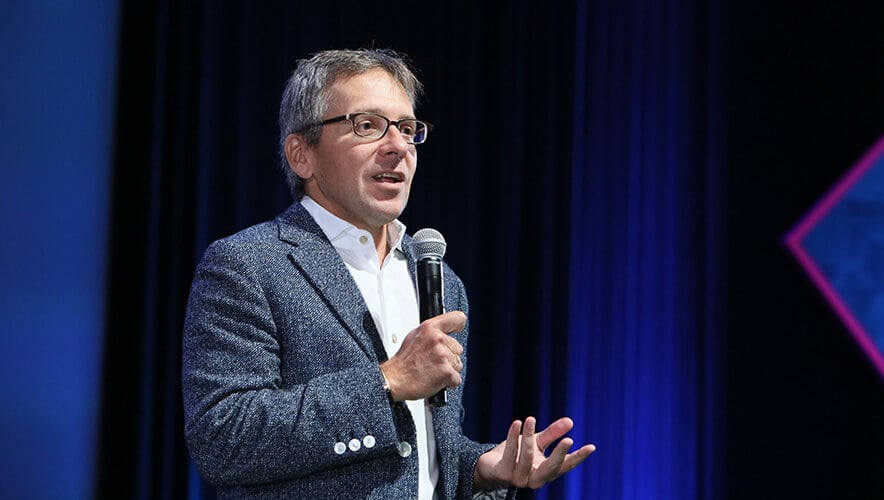Bremmer Talks Geopolitics and Strategy at GSX 2019
The world is on the verge of a “geopolitical recession,” warned entrepreneur and political risk analyst Ian Bremmer, Ph.D., in his keynote address at the 2019 Global Security Exchange (GSX).
“Growing polarization inside societies leads to disenfranchisement,” Bremmer told Security Management, pointing to political radicalization, the rise of white nationalism, the Yellow Vest demonstrations in Paris, growing referendums against traditional politicians, and the increasing anarchist movement. “All of those things are aligned with the same set of problems: it is regular people who feel like those in positions of power do not adequately represent them and there is no solution other than either checking out or violent revolt that will make a difference.”
While wealthier countries have a level of institutional stability that prevents rapid political shifts or movements like the Arab Spring, “at the margins, we are talking about security issues that do matter for these countries and affect the popularity of their leaders and the types of policies they put in place,” Bremmer said.
Bremmer, who is president and founder of political risk advisory firm Eurasia Group, warned GSX attendees that this growing dissatisfaction leads to weaker Western and American influence and trust in democratic processes, causing other countries to vie to fill the void.
“How did we get to a place where global politics feels so fragile, feels so volatile, where global security feels so fraught?” asked Bremmer. “What we have is the old U.S.-led global order coming apart.”
“We are entering into a global environment where the largest economy is going to be neither a free market economy nor a representative democracy,” he told Security Management. “And that fundamentally changes how we think about security. You used to have a global free market where everyone sort of agreed on the world’s playbook. They didn’t always play by the rules—they broke the rules or skirted the rules, but they kind of knew what the rules were. We’re now in an environment where there’s going to be competition over the rule set itself. And security organizations are going to need to adapt completely to that.”
For example, Bremmer added that China’s expanded investment in emerging markets—particularly Southeast Asia, Sub-Saharan Africa, and Eastern Europe—as part of its Belt and Road Initiative is likely to upend the status quo for global businesses.
“There’s no question that in some emerging markets, the Chinese are becoming the dominant source of trade and foreign direct investment,” he said. And in sectors where Chinese-backed investment is strong, such as ports, railroads, Internet cable, and other infrastructure, “it’s going to crowd out other private companies, and those private companies will have to either find a way to partner with the Chinese or they are going to find their opportunities are very limited.”
For CEOs to make better decisions in a changing, hyper-globalized economy, Bremmer said, “the first thing you have to do is create a culture where people around you are not only welcome to give you divergent information but are actually rewarded for pushing back on the CEO’s ideas.” “Without this culture as a foundation, a security leader’s robust and diverse intelligence findings could be ignored in favor of more palatable answers.
The fight for profitability and the structure of the organization will incentivize people to provide certain types of information over others, he added. A decentralized energy company might suffer if its individual branches and local subsidiaries try to compete for scarce resources and investment, and their leaders might be tempted to withhold any information that could be detrimental to their goals. A level of centralized yet diverse intelligence-gathering can help alleviate that issue, Bremmer said.
Companies that have created roles to manage these intelligence sources—such as chief strategy officers or chief political scientists—find themselves ahead of the game. “Those are people who know what they don’t know and are tasked with going and getting it,” he said.
Bremmer added one caveat, however: to reduce the risk of shrugging off strategic intelligence in the pursuit of faster expansion, this role needs to be well-integrated into the profit center of the organization.
Read more GSX keynote coverage here:
What Poker Taught One Expert About Cybersecurity
Jacobs CEO Steve Demetriou on the Cruciality of Culture
Q&A: John Kelly on China, Partnerships, and Border Security
